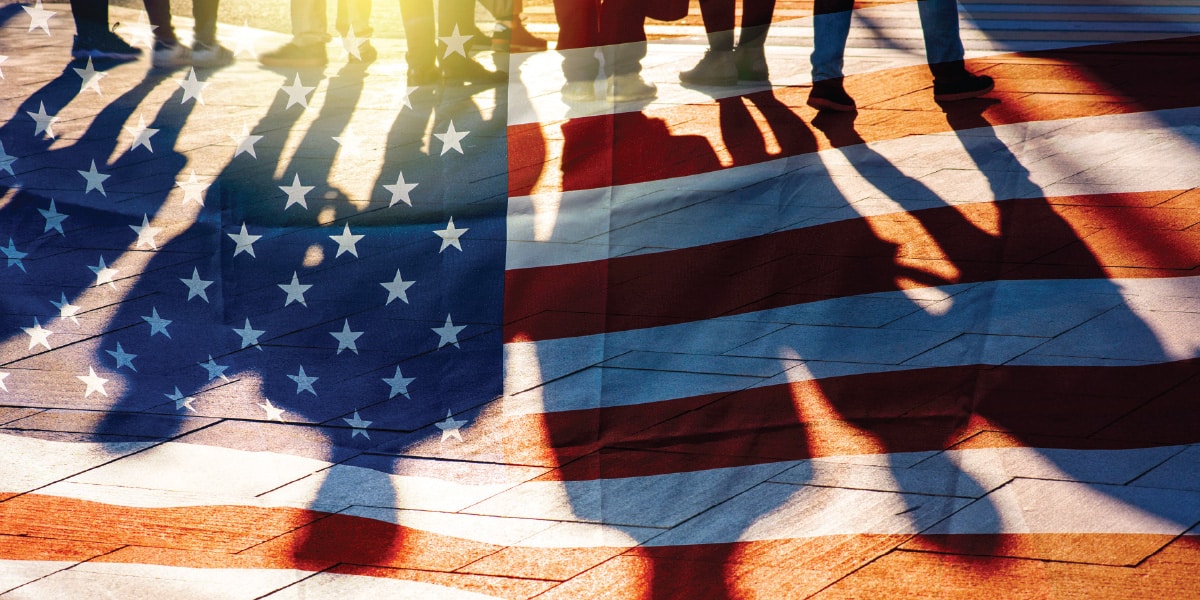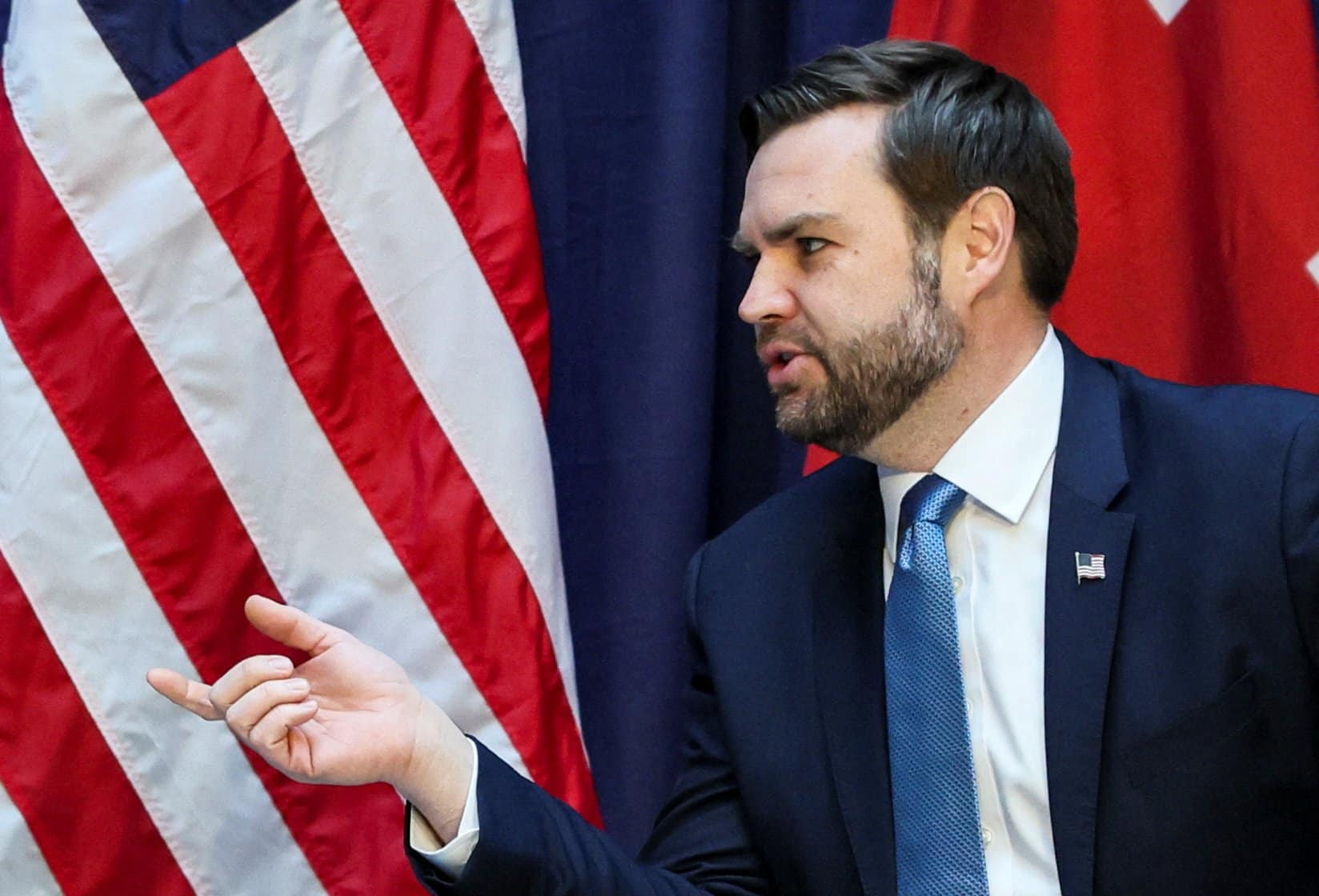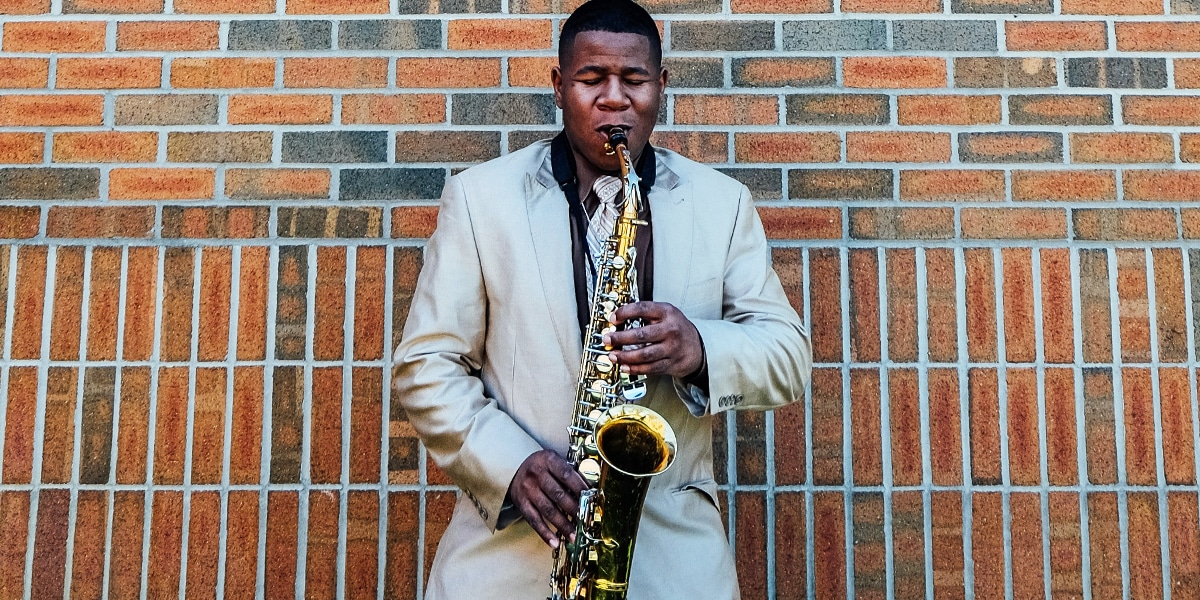When I began preparing to write this editorial on the immigration crisis in the United States and the current efforts underway for the mass deportation of undocumented immigrants, my knee-jerk reaction was to start poring over government statistics, studies from economists on the impact of mass deportations, and data from the Pew Research Center. But then I paused my research and reflected. I’m glad I did.
In the ensuing days, two radically different things happened, which reminded me that it’s our hearts that need changing first, and our minds will follow.
When the News Hits Close to Home
First, on February 7, a group of white supremacists bearing Nazi flags stood at an overpass in Evendale, Ohio, spewing messages of Nazism and hate. This overpass is 3.1 miles from the home I share with my wife, Belinda, who is originally from Mexico. And here was a group proudly announcing their vision for America: one cleansed of ethnic and racial minorities, immigrant populations, and Catholics—in other words, people like my wife and me. I was aghast, embarrassed, and angry.
But that’s not where it ended. A group of counter-demonstrators formed, largely from the historically Black neighborhood of Lincoln Heights, essentially driving away the hate group. In the following days, a demonstration dedicated to peace and racial harmony was held in the same spot, and I noticed hearts and peace signs on another nearby overpass. The surrounding community’s reaction helped remind me not to dwell in a place of anger. But what’s the next step from there?
We Are Connected
Three days after the demonstration, Pope Francis released a letter to the US bishops on the issue of migration in our country. In it, he quoted from Pope Pius XII’s 1952 apostolic constitution, Exsul Familia, which firmly identifies the Holy Family as refugees in a hostile foreign land. The document goes on to affirm the fundamental dignity of exiles, migrants, and prisoners of war.
In a sense, Pope Francis’ letter is a continuation of Exsul Familia. “Christians know very well that it is only by affirming the infinite dignity of all that our own identity as persons and as communities reaches its maturity,” he wrote. “Christian love is not a concentric expansion of interests that little by little extend to other persons and groups. In other words: The human person is not a mere individual, relatively expansive, with some philanthropic feelings!”
The Franciscan Province of Our Lady of Guadalupe also weighed in on the topic in an official statement from the provincial council. “Catholic social teaching demands that we recognize that all human beings are created in the image of God and therefore possess an inherent and inalienable dignity and respect,” the statement read. “The human rights that flow from the dignity of each human person include the right to migrate in the face of severe violence or desperate poverty.” Visit Friars.US to read the province’s full statement.
I know many of us feel disjointed right now, unsure of how we will ever feel whole as a nation again or engage in peaceful, fruitful dialogue. But Pope Francis’ letter is part of the wake-up call that we need. When we appeal to each other’s dignity, we start building something beautiful: solidarity. And when we lean into solidarity, we might just find our primitive fear of those unlike us replaced by the feelings that welled up in St. Francis when he embraced the leper: deep and abiding love and compassion. May we meet each other in that same sacred space.








